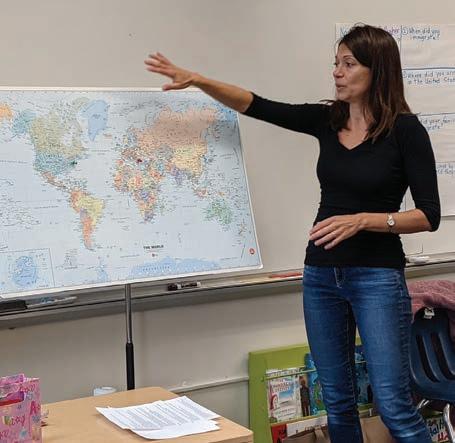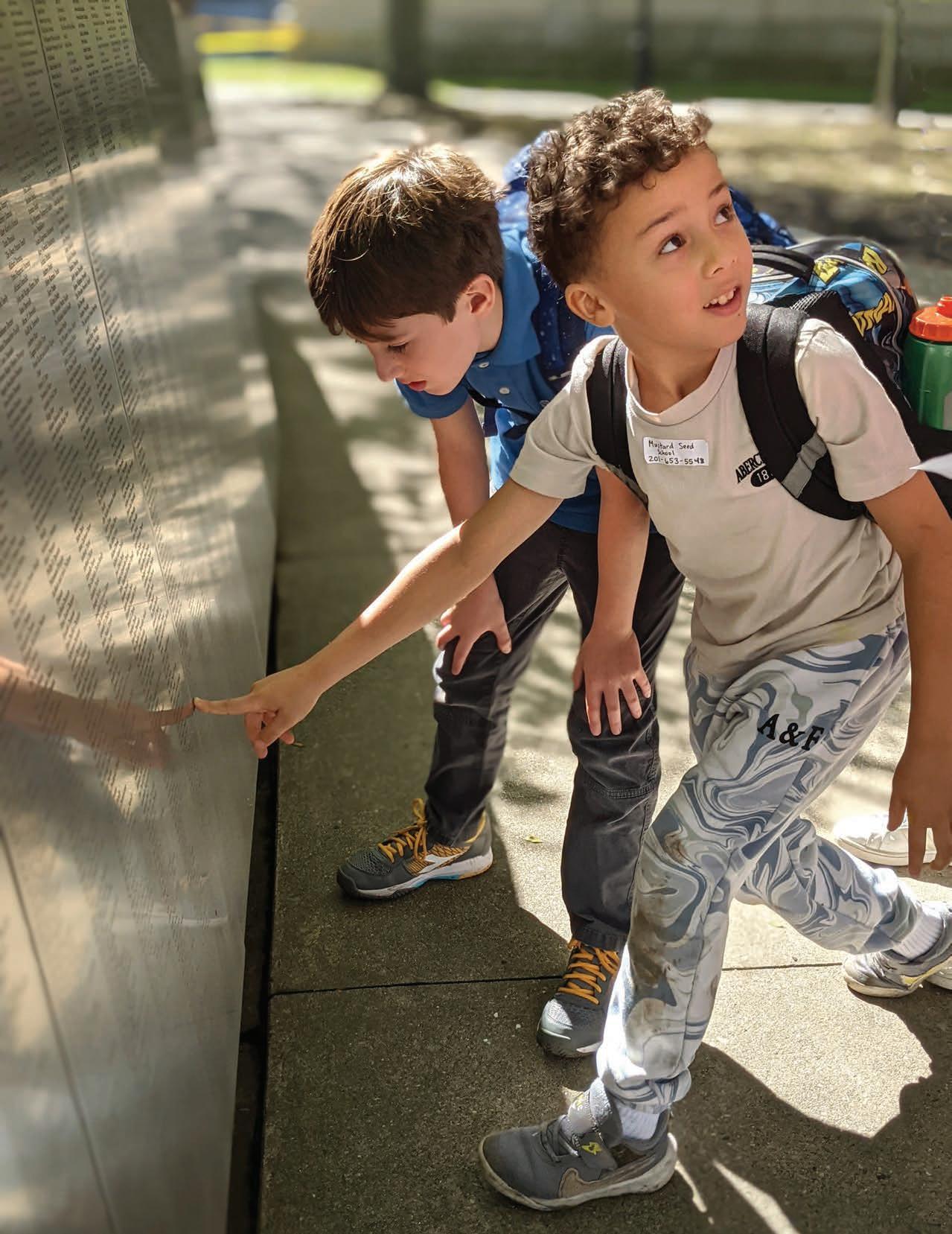
3 minute read
Cultural CAPITAL
For years, Mustard Seed students have ventured to Ellis Island to explore U.S. and sometimes their own personal history.
Last fall’s field trip to Ellis Island marked a significant milestone for Second and Third Grade Co-Teacher Cindy Kuperus: a member of her 2022-23 year class is the son of a former student who had also visited this landmark with her. (His photo is featured on the table of contents.) Ms. Kuperus has officially entered the realm of guide to a second generation! For many of her students through the years, the investigation of artifacts at The National Immigration Museum is more than an immersion into U.S. history. It is a celebration of a family story.
Advertisement

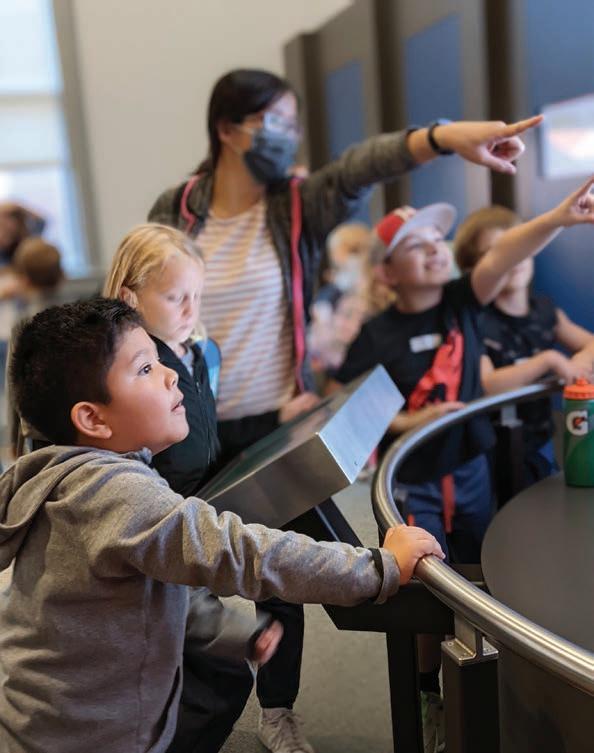
“Since our founding, field trips have played an integral role in the curriculum of Mustard Seed,” says MS Science and Sixth Grade Homeroom Teacher Ms. McCallihan. “Long before it was commonplace in education, frequent expeditions into the world beyond the classroom were part of our DNA. A field trip might provide the provocation when introducing a new topic or could enhance an aspect of study in the middle of a project.”
For example, in pre-COVID times, MS students often enrolled in the balls and tracks workshop at the Liberty
Science Center to experience the magic of physics firsthand after classroom study. “Seeing for themselves how friction and height influence a chain reaction elevated both the students’ cognitive understanding of Newton’s Law and their application of those concepts with their Rube Goldberg machine constructions,” says Ms. McCallihan. Intentionally placed and executed, excursions may also be scheduled for the end of a unit of study as a capstone to weeks of work and accumulated knowledge.
The Ellis Island trip was woven into the middle of a curriculum on immigration, bookended by migration stories delivered by parents and faculty. “Half of the students in my class have parents who were not born in this country,” says Ms. Kuperus. “My own parents immigrated here from the Netherlands. Those experiences enrich our community. They help all of us challenge our assumptions and cultivate authentic empathy in an increasingly interconnected world.”
For her presentation to the class, MSS parent Maya Gallagher featured artifacts and humorous anecdotes of her childhood in a small town in Bulgaria. “I feel passionately about Bulgaria and as the years have gone by, I’ve gained perspective and learned to appreciate everything about the culture,” says Ms. Gallagher. “However, I am trying to raise my girls with a broader view of the world.”
On a campus tour before enrolling her children, Ms. Gallagher observed that the classrooms at Mustard Seed had a European feel. “I remember being struck by the beauty and natural light inside the rooms, and the fact that the children were running outside every day.” Just as important to her was the cultural diversity. “Mustard Seed builds common ground by acknowledging and embracing differences. Parents and children have an opportunity to worship together daily and share values, however, there is always space to honor the complexity of our community.”
An appreciation of family heritage was clearly demonstrated in the Ellis Island excursion. Several students boarded the ferry proudly entrusted with the handwritten names of ancestors to locate on the American Immigrant Wall of Honor.
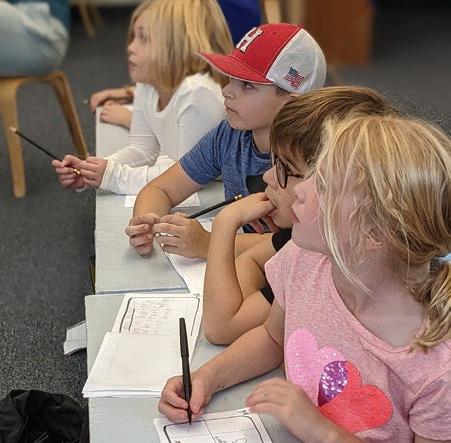
An appreciation of family heritage was clearly demonstrated in the Ellis Island excursion. Moving beyond the pursuit of academic knowledge characteristic of any MSS field trip, several students boarded the ferry proudly entrusted with the handwritten names of ancestors to locate on the American Immigrant Wall of Honor.
Sharing her immigration story with the class assumed special significance for MSS parent and WilmerHale Diversity, Equity and Inclusion Manager, Rocio Chavez, because the students are the same age that she was when her family made the move from Matamoros, a border town in Mexico, to Brownsville,Texas. Her striking narrative illuminated worries and successes attending a new elementary school from a child's perspective, and hit a chord with some class members who had struggled with similar concerns. Ms. Chavez’s talk opened a platform for a frank discussion on belonging that was surprisingly sophisticated for this age group.
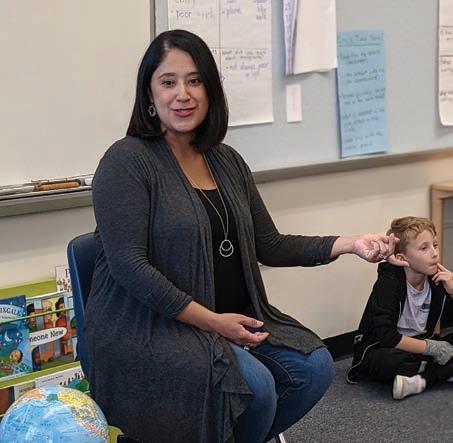
“Often, when I am consulted at work on issues around bias, I bring the discussion back to a sense of belonging,” says Ms. Chavez. “There are a lot of places to go from that foundation.”
Global citizenship requires cultural capital engendered by exposure to and celebration of many different identities. The Mustard Seed community is so fortunate to possess family histories that encompass the globe. Our students are the beneficiaries of this exchange of ideas and primary resources.
